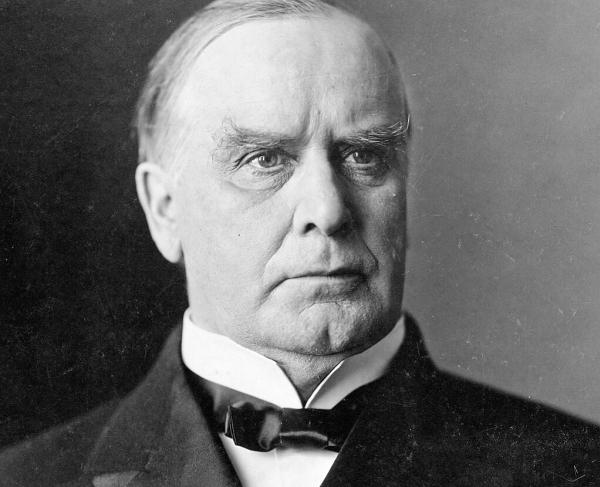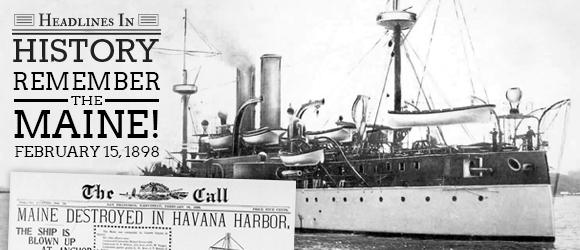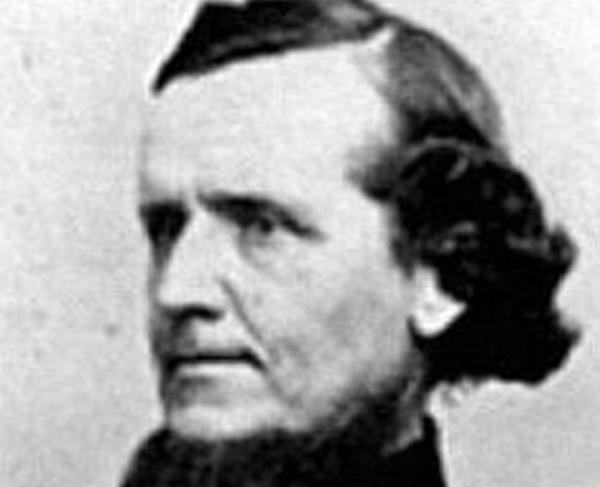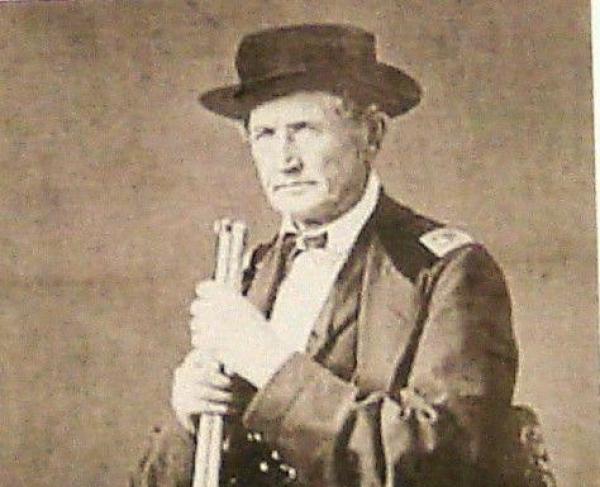William McKinley

The fifth and last Union veteran of the Civil War to be elected the president of the United States, William McKinley presided over an era of outward sectional reconciliation in the country and a new era of international expansion. As the 25th president, he led the country into the 20th Century and laid the groundwork for a future of international strength in the new century.
On January 29, 1843, William McKinley was born in Niles, Ohio. Just eighteen years old at the outbreak of the American Civil War, McKinley enlisted in the 23rd Ohio Regiment. Rutherford B. Hayes— a future congressman, governor of Ohio and 19th President of the United States—commanded the regiment.
William McKinley fought with the 23rd Ohio at several battles, including the Battle of Antietam on September 17, 1862, the bloodiest day in American history. McKinley showed great bravely and was promoted to the rank of second lieutenant following Antietam. By the end of the war in 1865, McKinley held the rank of brevet major. Returning to his home state of Ohio, he studied law and was admitted to the bar in 1867, opening a law office in Canton, Ohio.
Drawn into politics, the lawyer’s quiet life transformed as he became more involved with Republican party politics. McKinley supported his former commander Rutherford B. Hayes for governor in 1867 and Civil War General Ulysses S. Grant for president in 1868. Both candidates won their elections, and in 1869, McKinley became the elected prosecuting attorney for Stark County. In 1877, he began a lengthy career serving Ohio’s 17th District in the House of Representatives.
A Republican party concern centered on the foreign goods sold in the United States. Usually backed by wealthy industrialists, the Republicans wanted to use protective tariffs—a high tax on imported goods—to protect American manufacturers from foreign competition. Being from a state with rapidly growing industry, McKinley favored such high tariffs, but for more than just a pro-business bias. He took a different approach that still aligned his political parties ideals, insisting that a high tariff protected American works and would increase wages. He sponsored the McKinley Tariff of 1890 that proposed raising the tariff tax higher than ever before.
McKinley lost his seat in 1890, ending his career in the house but not in politics. With the assistance of wealthy Ohio industrialist Mark Hanna, McKinley served two terms as governor of Ohio from 1892 -1896. Hanna was a powerful figure in the Republican Party and laid the groundwork to gain his party’s presidential nomination for William McKinley in 1896.
McKinley campaigned on the gold standard while his Democratic opponent, William Jennings Bryan, called for a standard of gold and silver. While Bryan campaigned heavily, traveling thousands of miles to gain votes, McKinley stayed in Canton, Ohio, giving speeches from his front porch. Mark Hanna played his part by tapping into big businesses to contribute large sums of cash to the McKinley's campaign. McKinley won the presidential election decisively, becoming the first president to win a popular majority since 1872 and with an electoral vote of 271 to 176 over his opponent Bryan.
William McKinley's inauguration as the 25th President of the United States occurred on March 4, 1897. Almost immediately, he called for a special session of Congress to raise customs duties. On July 24, he signs the Dingley Tariff, the highest protective tariff up to that time. Yet, domestic issues played only a small role during William McKinley’s time in office.
Foreign policy marked his administration. Previously, the United States essentially practiced isolationism, chiefly due to the Monroe Doctrine of 1823. However, by the 1890s, many Americans had expressed signs of wanting a more prominent role on the world stage, and under William McKinley, the United States started to grow into an empire. He signed the resolution in 1898 that led to the annexation of the islands of Hawaii.
At the same time, Spain had holdings all over the globe, mainly in the Caribbean and the Pacific. Many Americans wanted to intervene in Cuba's conflict and oppose Spain's repression of the Cuban independence movement. McKinley initially hoped to avoid direct involvement, but that changed with two events. First, a letter written by the Spanish minister to Washington had been intercepted and published in American newspapers stated that President McKinley was weak and avoiding a fight. Then, several days after this letter appeared, an American battleship, USS Maine, exploded and sank while at anchor in Havana harbor, resulting in the deaths of 266 officers and men. (Later in the mid-20th century, an investigation proved an internal explosion on the ship caused the Maine incident.) The explosion of the Maine became the newspapers' rallying cry for action.

McKinley responded, demanding that Spain give up control of Cuba. When Spain declined, Congress authorized McKinley to use armed forces to fight in Cuba and on April 25, 1898, the United States declared war against Spain. This short war had only about four months of fighting, and the United States defeat Spanish forces in Puerto Rico, Cuba and the Philippines. With the signing of the Treaty of Paris in December 1898 and its ratification by the Senate in February 1899, Spain ceded Puerto Rico, Guam, and the Philippines to the United States, and Cuba gained its independence.
Following victory in the Spanish-American war, McKinley was reelected in 1900, defeating Williams Jennings Bryan again by a bigger margin than four years prior. After his inauguration, he toured the western states. On September 6, 1901, as McKinley shook hands with members of a crowd, he was shot twice by an anarchist. Although rushed to a nearby hospital in Buffalo, New York, he succumbed to his wounds, dying on September 14. Following the assassination, his vice president, Theodore Roosevelt, succeeded him as president.
William McKinley was buried in his hometown, Canton, Ohio.
Related Battles
12,401
10,316


